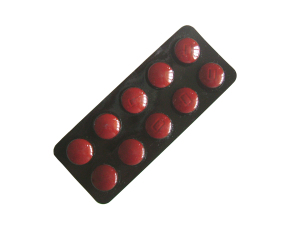
A year and a half ago I was coming into the final stretch for wedding planning. With 5 months to go, the pressure was on. I was starting to get stressed and I had promised myself I wouldn’t get stressed over what was supposed to be a fun, happy and exciting day. I had been working on my own, and with my naturopath, for a long time to manage my stress response. I had dialled in my nutrition for the most part, determined which supplements helped me, and modified my fitness routine to make sure I wasn’t over-taxing my body. But it just didn’t seem to be enough. I was still getting inappropriately stressed out. For example, I would be on the subway heading to my parents for dinner and there would be a delay. This was totally out of my control and fairly common for the transit system, not to mention being 10 minutes late for a casual dinner is not a big deal, especially if there is good reason! I mean heck, some people are always 10-15 minutes late! But I could feel myself getting worked up over it and no amount of self-coaching could stop that response. Ugh it was so annoying! I could see what was happening and couldn’t stop it.
It was probably the 3rd or 4th time my naturopath recommended meditation that I started taking it seriously. I was reading more and more reports of CEOs, successful entrepreneurs and mentors of mine who swore by meditation. Not only has it been shown to reduce stress and boost productivity, but it has significant health benefits as well. A reduction in anxiety, blood pressure and pain have all been documented. It can literally improve your health at any and all levels! I know it seems absurd, that 10 minutes of quiet time and deep breathing can change your life, so let’s break it down and learn why.
Have you ever been so scared, stressed, anxious, upset or angry that something changes physically in your body? Maybe you get a nervous stomach before an exam and can’t eat. Maybe you flush red or start to sweat if you’re stressed. In situations when someone is severely frightened, they actually lose control over their bowels and/or bladder. I bet if you really think about it, you can recognize a time when an emotion triggered a physical response in your body. When I was in university I would always get eczema on my knuckles and canker sores in my mouth during exams. It was like clockwork! I also used to get so nervous about certain situations that I wouldn’t be able to eat, or I would have to run to the bathroom – seriously! What’s going on?
Thoughts trigger or our emotions. Emotions trigger a hormonal response. Hormones affect change on every cell in the body.
Therefore the thoughts that you have will impact the health of your body, by way of of the endocrine system. Think being stressed out is safe and just something we have to learn to deal with? Think again. Stress can and will damage your body. Where that damage occurs differs from person to person, but it can cause leaky gut, fatigue, increased rate of infection, elevated blood pressure, weight gain or loss and hormonal imbalances. Everything from fatty liver disease and low libido to low thyroid hormone, osteoporosis and infertility. This is serious. It doesn’t matter how on point your nutrition is, or how perfect your exercise routine is – if your stress is high and poorly managed, you will not be able to optimize your health.
This is where the power of meditation comes in. Many people think meditation is about relaxation, but that’s not exactly the case. Meditation is a tool to increase awareness within ourselves. It is a practice that allows us to quiet the monkey chatter in our brain. You know what I’m talking about! No? Ok, do this right now – try to wipe your brain completely and not think about anything for 1 minute…how long did you last? About 7 seconds? Right – monkey chatter! Over time, the more you meditate, the better you get at quieting that unnecessary brain talk and then the magic happens. Without that brain chatter, you truly get to know yourself – how you’re feeling, what emotions are dominant in that moment, and how you perceive the world. You learn to control your mind’s response to situations. Actually, control isn’t the right word… you are able to acknowledge that your mind is responding a certain way and decide if that’s actually how you want to move forward. It’s incredibly empowering. The more you do it, the better you get at it too!
I started April 1st, 2013 and meditated every single morning for 80 days straight. It made a profound impact on my stress levels during wedding prep. Other than a few blips here and there, it was smooth sailing. And while I did it for very specific outcome (stress-free wedding planning and day), it was one of the missing pieces of my health recovery program. Now if ever I wake up feeling anxious (for example if I overindulged the night before) meditating can totally turn the day around for me. If I start to get worked up about something, I don’t even have to full on meditate anymore. I can acknowledge the thoughts that are flying about my mind and choose to gently push them aside and think clearly and critically about the situation. And when something does happen that is epically stressful, I can handle it without it destroying my life for a few days. Like I said – profound. I meditate almost every work day morning (but I’m not perfect!) and any acute situations where I’m feeling added stress, or needing clarity.
So how do I meditate? Well it took me a while to figure out what worked for me, since it’s a very personal experience. So I thought I would share what I do, to help out someone who may be looking for a way to meditate that’s not all ohming and candles (although that’s awesome for some people!).

Amanda’s Personal Recipe for Meditation
My alarm goes off in the morning.
I wake up, use the bathroom and get a glass of water with lemon and a pinch of sea salt.
I sit down with a meditation CD and set it to 10 or 15 minutes from the end.
I write down 4 words that are going to set the tone for my day. Some examples include:
grateful, focused, happy, calm
strong, confident, encouraging, compassionate
I close my eyes, press play on the music and start reciting my words in my head, in time with my breath:
As I breath in: grateful, focused
Breathe out: happy, calm
After a couple of rounds, I lengthen the phrase:
As I breath in: grateful and focused
Breathe out: happy and calm
I lengthen again when I feel like I can breathe in for even longer:
As I breath in: I’m grateful and focused
Breathe out: I’m happy and calm
I keep lengthening the sentence until I end up at:
As I breath in: I am grateful and I am focused
Breathe out: I am happy and I am calm
By this point my breathing is going at a deep, steady, rhythmic pace that energizes every cell in my body.
When the music finishes, I finish my last repetition, or sometimes repeat it once more if it’s feeling particularly good. Then I open my eyes, get up slowly but surely, and start the day full of positive energy.
Troubleshooting

Falling asleep – meditate sitting up in a firm chair, or cross legged on the ground, instead of lying down
Can’t quiet mind – that’s okay! Acknowledge the thoughts that come in and gently push them away. Some days have more brain chatter than others. There’s no way to “win” at meditation. It’s always a practice.
Can’t remember your mantra – make it really simple (“happy, grateful, happy, grateful”) or count in for 2, out for 2 and slowly increase the number.
Resources:
Deepak Chopra’s Guided Meditation
Meditation and Mindfulness Apps
An Ancestral Approach to Meditation
10 Minute Guided Meditation to Ease Anxiety, Worry and Urgency





